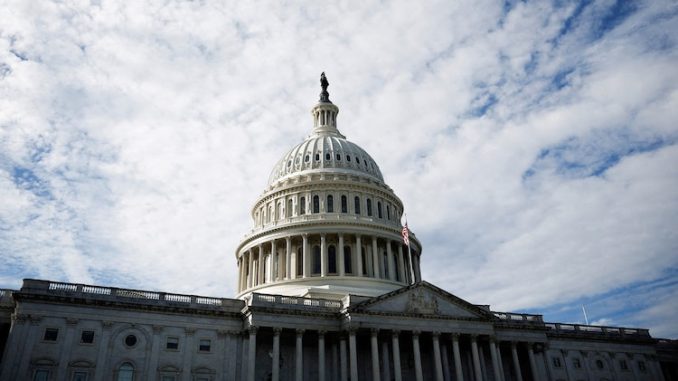
The Congressional Budget Office (CBO) recently released an analysis indicating that a proposed tax plan from former President Donald Trump could lead to a staggering $2.4 trillion increase in the federal deficit over the next decade. This assessment raises significant concerns among economists and policymakers regarding the long-term sustainability of such fiscal policies.
The CBO’s projections are based on the assumption that the proposed bill would reduce federal revenues significantly through substantial tax cuts for individuals and corporations. Specifically, the plan aims to lower tax rates across the board, while also eliminating certain corporate taxes. While proponents argue that these cuts would stimulate economic growth, the CBO’s findings highlight a potential disconnect between tax cuts and tangible economic expansion.
Critics argue that the proposed tax measures disproportionately benefit the wealthy and large corporations, potentially exacerbating income inequality. They cite historical precedents where similar tax cuts did not yield the promised economic benefits, leading instead to increased budget deficits and reduced public investment in vital areas such as infrastructure, education, and healthcare. The CBO’s projection further underscores this concern, as the increased deficit could limit the government’s ability to fund essential programs.
In contrast, supporters of Trump’s tax bill assert that cutting taxes for businesses stimulates investment and job creation, ultimately generating more revenue through economic growth. They argue that the bill would provide much-needed relief for families and boost consumer spending. However, the CBO’s analysis raises questions about the validity of these claims, noting that the estimated growth resulting from such tax cuts may not sufficiently offset the revenue losses.
The implications of a $2.4 trillion increase in the deficit are considerable. Such an increase could lead to higher borrowing costs as the government would need to finance its growing deficit, potentially resulting in higher interest rates for consumers and businesses. Furthermore, persistent deficits can undermine confidence in the nation’s fiscal stability, leading to adverse reactions in financial markets.
In summary, the CBO’s assessment of the proposed tax bill emphasizes the importance of a balanced approach to fiscal policy. As lawmakers consider the implications of significant tax cuts, it is crucial to weigh the potential short-term economic benefits against the long-term consequences for the federal deficit and overall economic health. Achieving fiscal sustainability will require careful deliberation and consideration of the broader economic impacts of such policies.

Be the first to comment